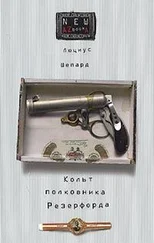He stared meanly and fired a third time: this was serious business, and he wanted me to die. “Row-nal Ray-gun,” he said, and pretended to spit.
I just laughed and climbed into the car. The gook corporal engaged the gears, and we sped off into a boil of dust and light, as if—like Stoner—we were passing through a metaphysical barrier between worlds. My head bounced against the back of the seat, and with each impact I felt that my thoughts were clearing, that a poisonous sediment was being jolted loose and flushed from my bloodstream. Thick silence welled from the rear of the car, and not wanting to ride with hostiles all the way to Saigon, I turned to Witcover and apologized for having hit him. Pressure had done it to me, I told him. That, and bad memories of a bad time. His features tightened into a sour knot and he looked out the window, wholly unforgiving. But I refused to allow his response to disturb me—let him have his petty hate, his grudge, for whatever good it would do him—and I turned away to face the violent green sweep of the jungle, the great troubled rush of the world ahead, with a heart that seemed lighter by an ounce of anger, by one bitterness removed. To the end of that passion, at least, I had become reconciled.
There was this guy I knew at Noc Linh, worked the corpse detail, guy name of Randall J. Willingham, a skinny red-haired Southern boy with a plague of freckles and eyes blue as poker chips, and sometimes when he high, he’d wander up to the operations bunker and start spouting all kinds of shit over the radio, telling about his hometown and his dog, his opinion of the war (he was against it), and what it was like making love to his girlfriend, talking real pretty and wistful about her ways, the things she whisper and how she’d draw her knees up tight to her chest to let him in deep. There was something pure and peaceful in his voice, his phrasing and listening to him, you could feel the war draining out of you, and soon you’d be remembering your own girl, your own dog and hometown, no: with heartsick longing but with joy in knowing you’d had at least that much sweetness of life. For many of us, his voice came to be the oracle of our luck, our survival, and even the brass who tried to stop his broadcasts finally realized he was doing a damn sight more good than any morale officer, and it got to where anytime the war was going slow and there was some free air, they’d call Randall up and ask if he felt in the mood to do a little talking.
The funny thing was that except for when he had a mike in his hand—you could hardly drag a word out of Randall. He had been a loner from day one of his tour, limiting his conversation to “Hey” and “How you?’ and such, and his celebrity status caused him to become even less talkative This was best explained by what he told us once over the air: “You meet ol’ Randall J. on the street, and you gonna say, ‘Why that can’t be Randall J.! That dumb-lookin’ hillbilly couldn’t recite the swearin’-in oath, let alone be the hottest damn radio personality in South Vietnam!’ And you’d right on the money, ’cause Randall J. don’t go more’n double figure IQ, and he ain’t got the imagination of a stump, and if you stopped to say ‘Howdy,’ chances are he’d be stuck for a response. But lemme tell ya, when he puts his voice into a mike, ol’ Randall J. becomes one the airwaves, and the light that’s been dark inside him goes bright. his spirit streams out along Thunder Road and past the Napalm Coast, mixin’ with the ozone and changin’ into Randall J. Willingham, the High Priest of the Soulful Truth and the Holy Ghost of the Sixty-Cycle Hum.” The base was situated on a gently inclined hill set among other hills, all of which had once been part of the Michelin rubber plantation, but now was almost completely defoliated, transformed into dusty brown lumps. Nearly seven thousand men were stationed there, living in bunkers and tens dotting the slopes, and the only building with any degree of permanence was an outsized Quonset hut, but that that housed the PX; it stood just inside
the wire at the base of the hill. I was part of the MP contingent, and I guess I was the closest thing Randall had to a friend. We weren’t really tight, but being from a small Southern town myself, the son of gentry, I was familiar with his type—fey, quiet farmboys whose vulnerabilities run deep—and I felt both sympathy and responsibility for him. My sympathy wasn’t misplaced: nobody could have had a worse job, especially when you took into account the fact that his top sergeant, a beady-eyed, brush-cut, tackle-sized Army lifer named Andrew Moon, had chosen him for his whipping boy. Every morning I’d pass the tin-roofed shed where the corpses were off-loaded (it, too, was just inside the wire, but on the opposite side of the hill from the PX), and there Randall would be, laboring among body bags that were piled around like huge black fruit, with Moon hovering in the background and scowling. I always made it a point to stop and talk to Randall in order to give him a break from Moon’s tyranny, and though he never expressed his gratitude or said very much about anything, soon he begn to call me by my Christian name, Curt, instead of by my rank. Each time I made to leave, I would see the strain come back into his face, and before I had gone beyond earshot, I would hear Moon reviling him. I believe it was those days of staring into stomach cavities, into charred hearts and brains and Moon all the while screaming at him… I believe that was what had squeezed the poetry out of Randall and birthed his radio soul.
I tried to get Moon to lighten up. One afternoon I bearded him in his tent and asked why he was mistreating Randall. Of course I knew the answer. Men like Moon, men who have secured a little power and grown bloated from its use, they don’t need an excuse for brutality; there’s so much meanness inside them, it’s bound to slop over onto somebody. But—thinking I could handle him better than Randall—I planned to divert his meanness, set myself up as his target, and this seemed a good way to open.
He didn’t bite, however; he just lay on his cot, squinting up at me and nodding sagely, as if he saw through my charade. His jowls were speckled with a few days’ growth of stubble, hairs sparse and black as pig bristles. “Y’know,” he said, “I couldn’t figure why you were buddyin’ up to that fool, so I had a look at your records.” He grunted laughter. “Now I got it.”“
“Oh?” I said, maintaining my cool.
“You got quite a heritage, son! All that noble Southern blood, all them dead generals and senators. When I seen that, I said to myself, ‘Don’t get on this boy’s case too heavy, Andy. He’s just tryin’ to be like his greatgrandaddy, doin’ a kindness now and then for the darkies and the poor white trash.’ Ain’t that right?”
I couldn’t deny that a shadow of the truth attached to what he had said, but I refused to let him rankle me. “My motives aren’t in question here,” told him.
“Well, neither are mine… ‘least not by anyone who counts.” He swung his legs off the cot and sat up, glowering at me. “You got some nice duty here, son. But you go fuckin’ with me, I’ll have your ass walkin’ point in Quanh Tri ‘fore you can blink. Understand?”
I felt as if I had been dipped in ice water. I knew he could do as he threatened—any man who’s made top sergeant has also made some powerful friends—and I wanted no part of Quanh Tri.
He saw my fear and laughed. “Go on, get out!” he said, and as I stepped through the door, he added, “Come round the shed anytime, son. I ain’t got nothin’ against noblesse oblige. Fact is, I love to watch.”
And I walked away, knowing that Randall was lost.
Читать дальше






